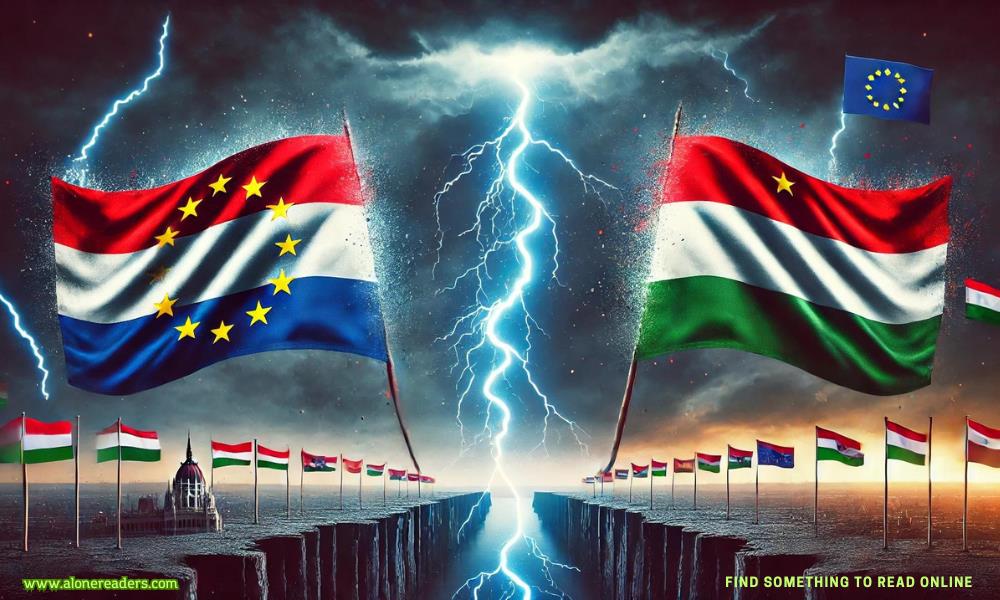
The relationship between Hungary and the European Union has long been fraught with tension, but recent developments have led to an escalation in hostilities, particularly as Hungary prepares for its upcoming presidency of the EU Council in 2024. The Hungarian government, led by Prime Minister Viktor Orbán, has clashed with EU leaders over issues ranging from the rule of law and human rights to media freedom and migration policies. As the date of Hungary’s EU Council presidency approaches, the discord between Hungary and the EU has deepened, sparking concerns about the implications for the European Union's leadership and credibility.
Hungary is scheduled to assume the rotating presidency of the Council of the European Union in the second half of 2024. Traditionally, the presidency holds significant responsibilities, including setting the EU's legislative agenda and facilitating consensus among member states on crucial policies. However, Hungary's track record on issues like democracy, judicial independence, and media freedom has alarmed other EU nations, many of whom question Hungary's ability to lead the Council in a manner consistent with the EU’s values.
The most pressing concerns revolve around Hungary’s internal policies under Prime Minister Orbán, which have increasingly been seen as undemocratic. The Hungarian government has faced criticism for eroding judicial independence, curbing the freedom of the press, and implementing laws seen as discriminating against minorities and migrants. Such policies have led to several infringement procedures launched by the European Commission, further straining relations between Hungary and the rest of the EU.
One of the main sources of tension between Hungary and the EU is the issue of the rule of law. The European Union has launched several legal procedures against Hungary, citing violations of democratic norms and governance standards. In 2022, the European Parliament went as far as declaring that Hungary could no longer be considered a fully functioning democracy. This ruling was largely symbolic but underscored the severity of the EU's concerns.
At the heart of the dispute is the EU’s conditionality mechanism, which links the disbursement of EU funds to member states' adherence to the rule of law. Hungary has repeatedly pushed back against these conditions, accusing the EU of politically motivated interference. The standoff has led to a delay in Hungary receiving billions of euros in EU recovery funds, further aggravating relations.
The upcoming Council presidency has only intensified the focus on Hungary’s compliance with the rule of law. Many EU leaders are now calling for Hungary’s presidency to be reviewed or even revoked, arguing that a country in open conflict with the EU’s foundational values should not hold such an influential position.
Another flashpoint in the Hungary-EU standoff is the issue of media freedom. Critics argue that the Orbán government has systematically dismantled Hungary's independent media, turning it into a tool for government propaganda. A report by the European Federation of Journalists in 2023 highlighted the dire state of media pluralism in Hungary, where government-aligned oligarchs control a significant portion of the media landscape.
The European Union has repeatedly expressed concerns over the lack of press freedom in Hungary, viewing it as part of a broader trend of democratic backsliding. This has become a key point of contention as Hungary prepares to assume the Council presidency, with EU leaders questioning whether a country with such a poor record on press freedom can effectively lead the EU’s legislative agenda.
Hungary’s hardline stance on migration has also been a source of conflict with the EU. Since the 2015 migrant crisis, Prime Minister Orbán has taken a tough approach to immigration, building fences along Hungary's borders and refusing to participate in EU-wide efforts to distribute asylum seekers among member states. This stance has put Hungary at odds with countries like Germany, Italy, and France, who advocate for more equitable solutions to the migration crisis.
Hungary’s migration policies are closely tied to its foreign relations, particularly with its neighbors and other EU countries. Orbán has positioned Hungary as a defender of European Christianity and a bulwark against what he describes as mass immigration from Muslim-majority countries. This rhetoric has deepened divisions within the EU and drawn condemnation from other member states, further souring Hungary’s relations with the bloc.
As Hungary’s EU Council presidency draws nearer, several EU leaders have voiced their concerns. MEPs from the European Parliament, particularly from the Greens and Social Democrats, have been vocal about the need to reconsider Hungary's role in the presidency. Some are even calling for a postponement or revocation of Hungary’s turn to lead the Council, although this would require unanimous agreement from all member states—a difficult hurdle to overcome.
The European Commission, while concerned, has so far refrained from openly supporting such drastic measures. Instead, the Commission has focused on using existing legal mechanisms, such as the conditionality regulation, to pressure Hungary into compliance with EU norms. Still, the idea of Hungary presiding over the Council while simultaneously defying the EU on core democratic principles has left many in Brussels uneasy.
Conclusion
The tension between Hungary and the European Union has been escalating for years, but the upcoming EU Council presidency has brought these issues to a head. As Hungary prepares to assume this crucial leadership role, questions about its commitment to the EU’s democratic values, the rule of law, and media freedom continue to dominate discussions in Brussels.
While it remains to be seen whether Hungary's presidency will be allowed to proceed without challenge, the ongoing conflict is a reminder of the deep divisions within the EU over the direction of the bloc’s future. The upcoming months will be crucial in determining whether Hungary can reconcile its differences with the EU or whether this presidency will mark a new low point in the already fraught relationship between Budapest and Brussels.